 When commies get their hooks into you it's forever. 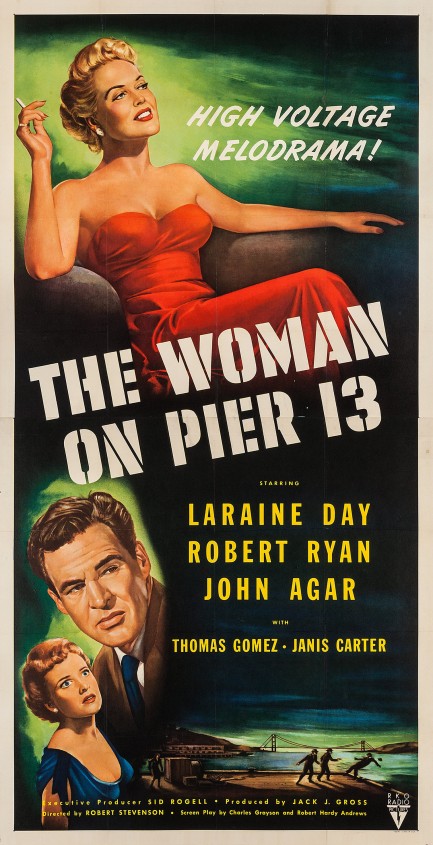
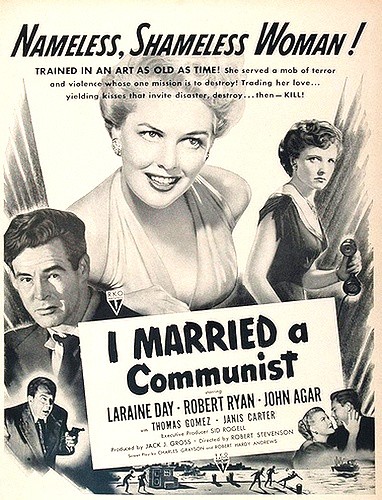 The Woman on Pier 13, for which you see a very nice promo poster above, had a pre-release title that tells you everything you need to know about it. That title was I Married a Communist. What you get here is a melodrama about Laraine Day, whirlwind married to successful San Francisco industrialist Robert Ryan, an exemplar of American free enterprise, but who was once a member of the communist party back in New Jersey. Uh oh. The Woman on Pier 13, for which you see a very nice promo poster above, had a pre-release title that tells you everything you need to know about it. That title was I Married a Communist. What you get here is a melodrama about Laraine Day, whirlwind married to successful San Francisco industrialist Robert Ryan, an exemplar of American free enterprise, but who was once a member of the communist party back in New Jersey. Uh oh. Long before meeting and marrying Day, he exited the party without even thanking his hosts for the snacks, moved to Frisco, and changed his name. Married life is going wonderfully until the commies track him down and threaten to expose him if he doesn't give over two fifths of his salary each month and sabotage labor negotiations between San Fran shipping magnates and striking dockworkers. They kill a guy in front of him, just so he knows they mean business. The sneaky, thieving, blackmailing, murdering rats. They're cruel squared. All they needed to be worse were monocles and riding crops. And maybe a handy tray of stainless steel dental hooks. And speaking of hooks, wait until you see what what Ryan can do with one. The Woman on Pier 13 is well made and pretty fun, but it's less useful as cinema than as a time capsule of anti-commie propaganda. It premiered today in 1949. 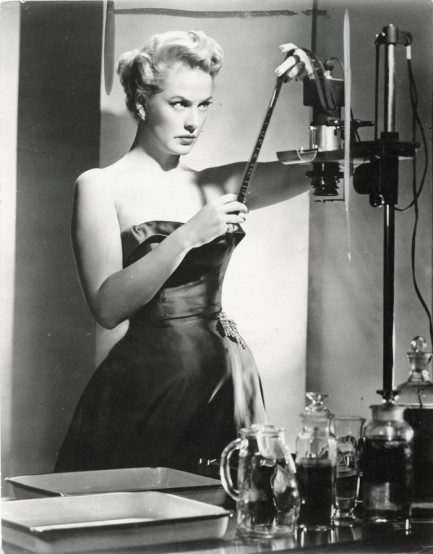 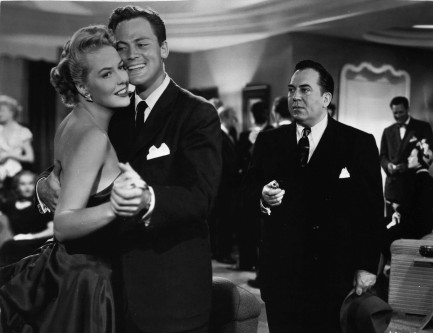 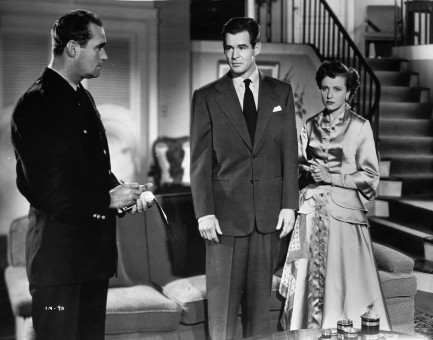 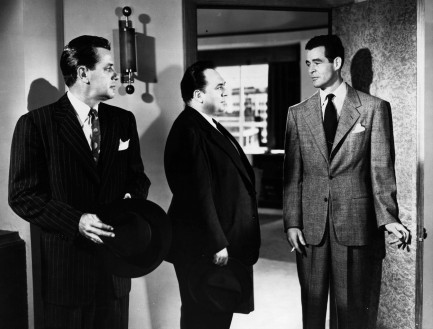 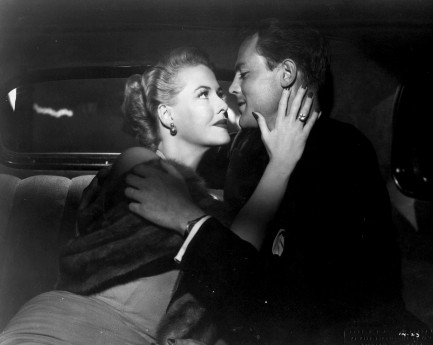 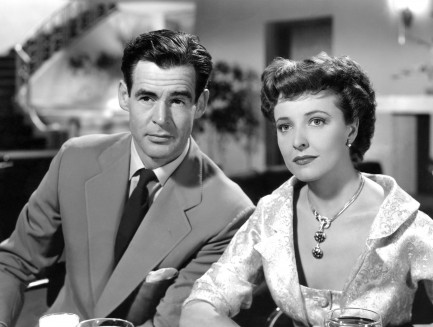
 Glenn Ford gets the picture and it isn't pretty. 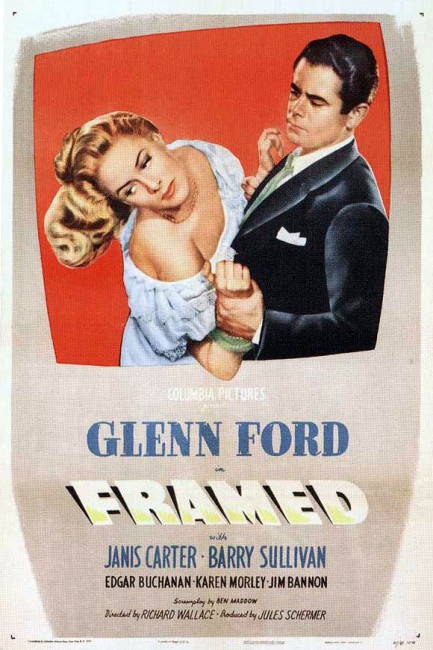
This poster for the film noir Framed, which premiered in the U.S. today in 1947, is a bit different in style from what you'd normally see during the 1940s. It was a low budget movie, so we imagine this was the low budget solution to promo art. It's reasonably effective, enough so that we decided to watch the movie, and the premise is that pretty boy Glenn Ford is a down-on-his-luck job seeker who's been unwittingly selected by a couple of shady characters to take the fall for a bank embezzlement. We didn't give anything away there. Viewers know pretty much right away Ford is being set up, who's doing it, and why. It's the complications that make the movie, and those accumulate rather quickly. If being framed is defined as to be on the hook for a crime you didn't commit, then there's more than one framee in this film, which is where clever scripting comes in to rescue a bottom drawer budget. In the end you get a nice b-noir with a title that takes on more significance than you'd at first assume. We recommend it highly. 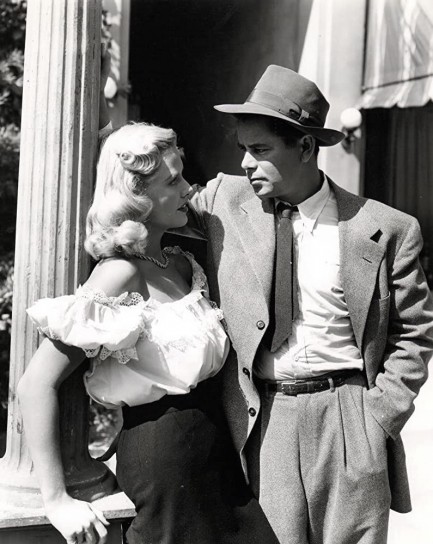 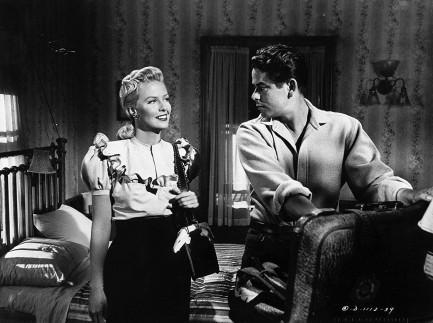 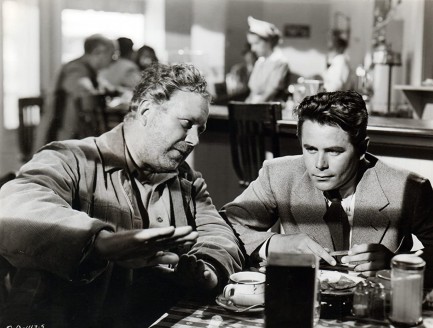 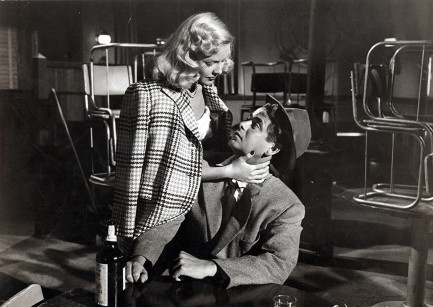 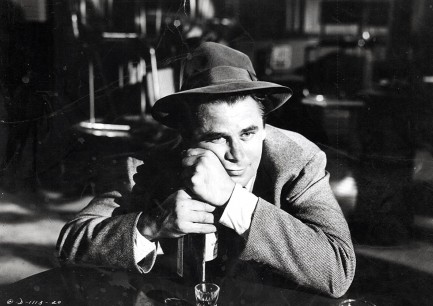 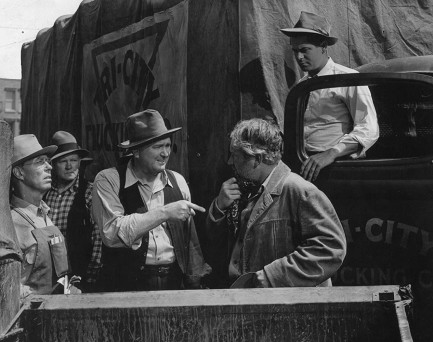 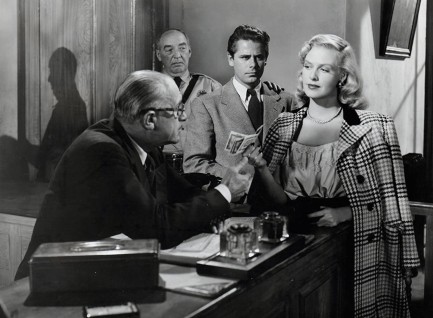 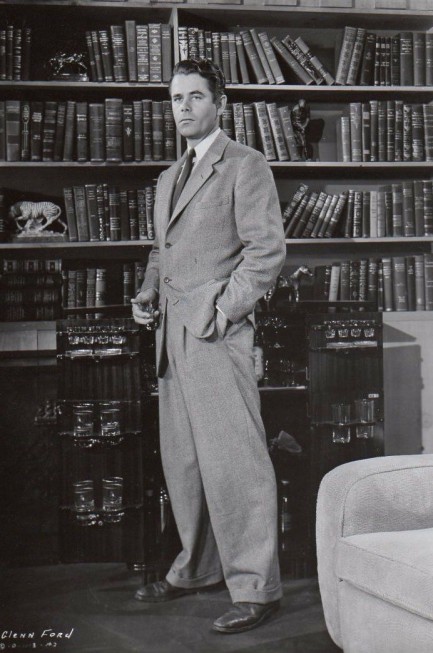 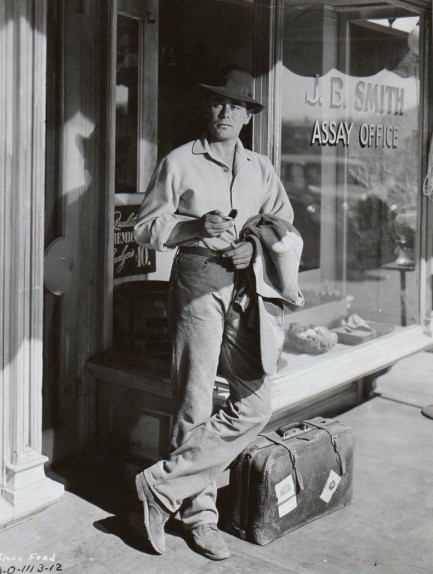 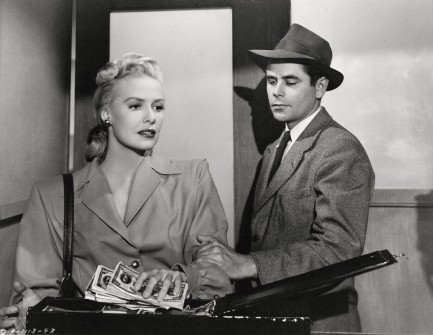 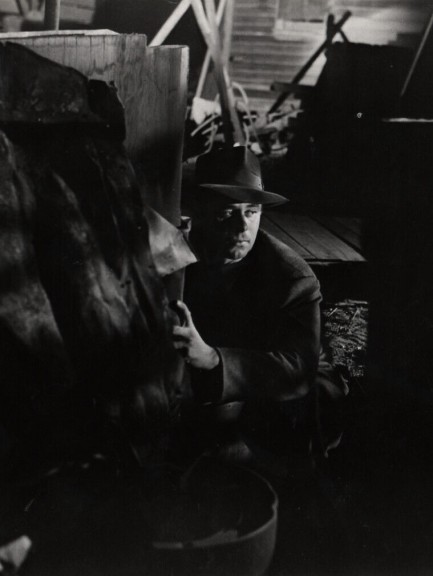 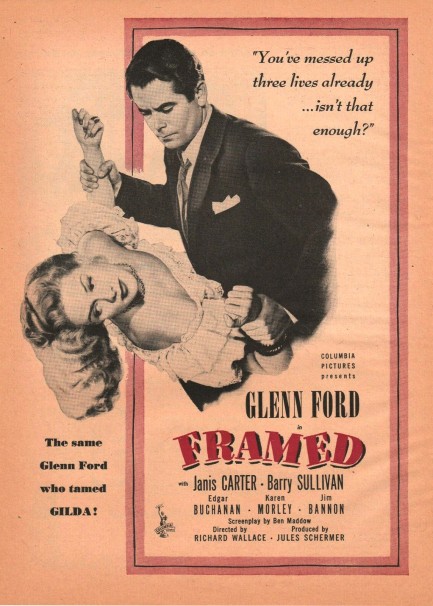
 As far as they're concerned no crime means no fun. 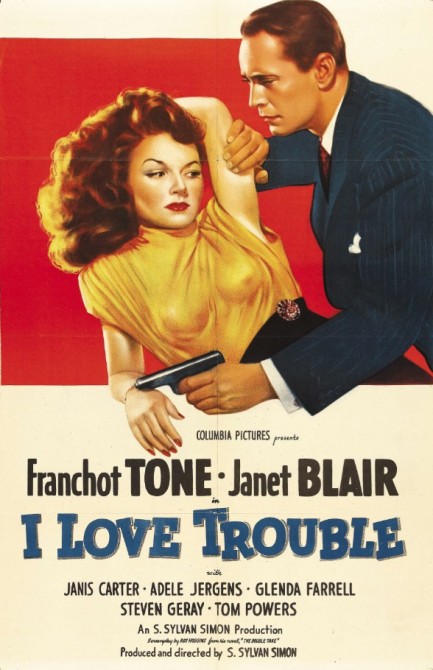
The 1994 romantic action movie I Love Trouble is unrelated to the original from 1948, for which you see a beautiful promo poster above. The first I Love Trouble is a film noir, a neglected one not often mentioned as an entry in the genre. Franchot Tone stars as a detective hired by a politician to look into his wife's background. He's been getting anonymous notes implicating her in some sort of illegality. As Tone chases clues from L.A. to Portland, his investigation uncovers blackmail and hidden identities, and of course a love interest pops up in the form of the wife's sister. With its smug private dick and regular interjections of humor the movie feels derivative of The Maltese Falcon, and its romance angle is incongruous, but Tone is cool in his detective role and carries the weight of the narrative nicely. The cast is a who's-who of stars and soon-to-be stars, including Adele Jergens, John Ireland, Tom Powers, and Raymond Burr. If that doesn't pique your interest you just don't love trouble. I Love Trouble premiered today in 1948 and went into to wide release January 15. 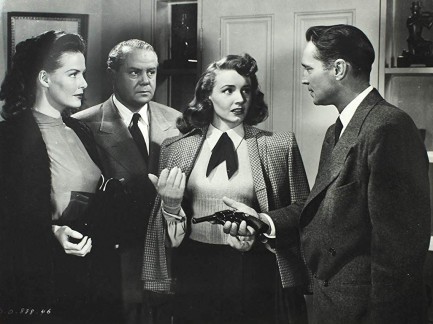 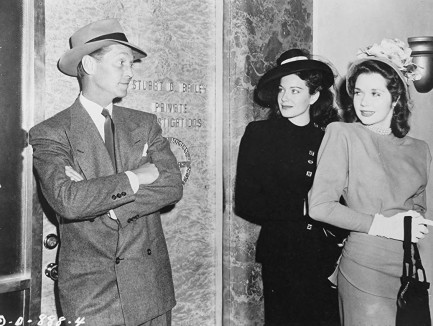 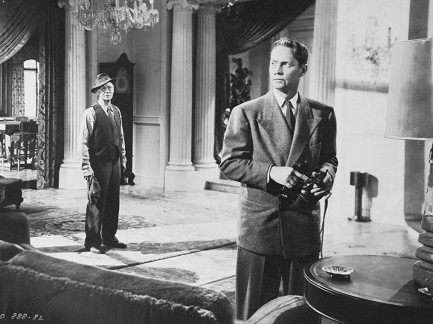 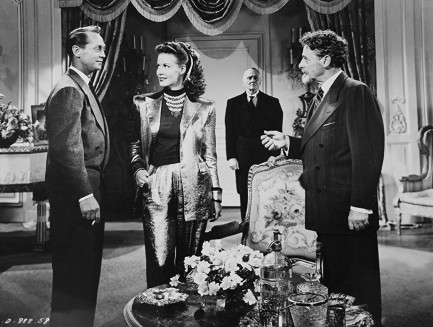 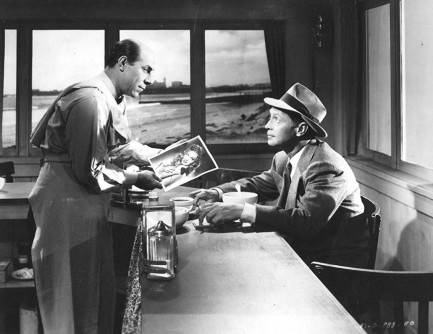 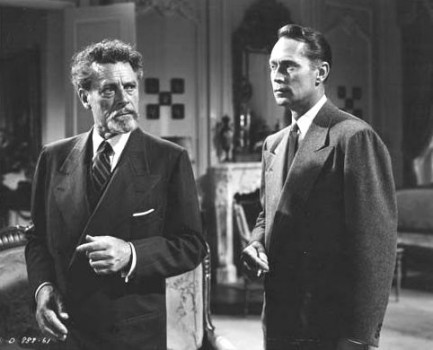 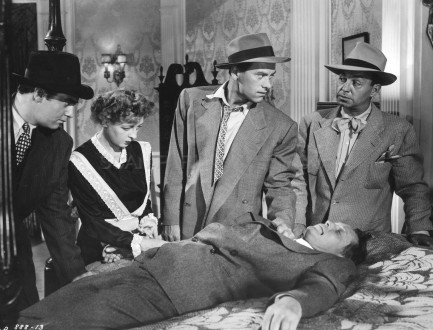 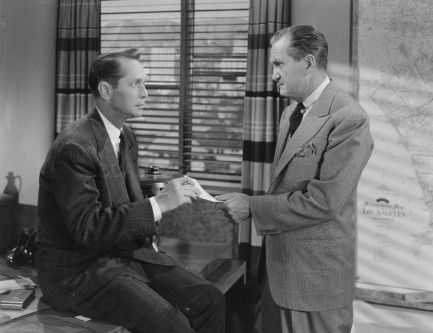 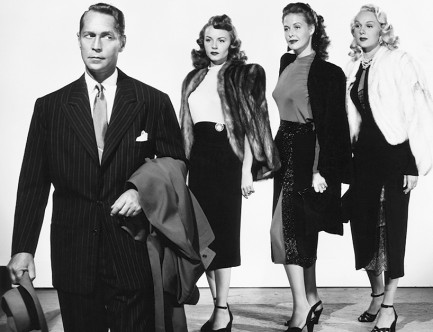
 Nothing's harder to rewrite than a lie. 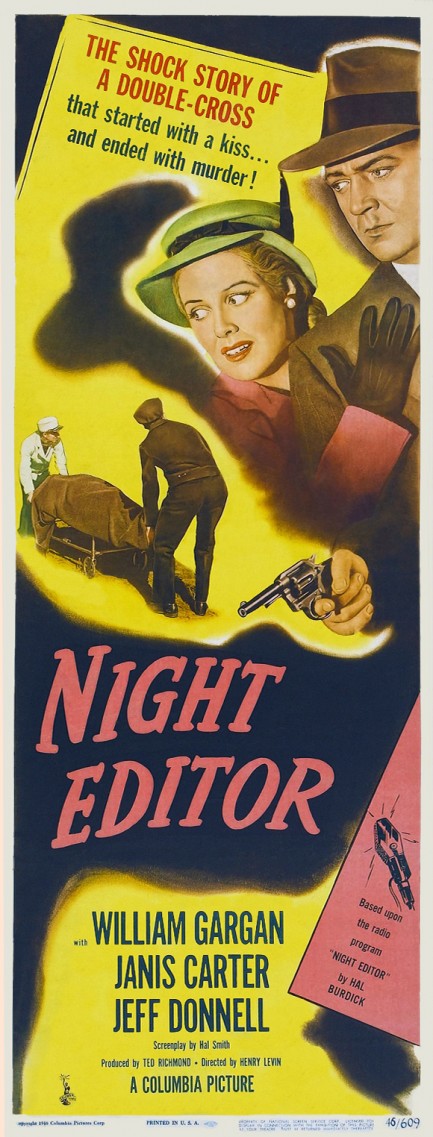
This simple but effective poster was made to promote the simple but effective film noir Night Editor, starring William Gargan, Janis Carter, and Jeff Donnell. A group of grizzled reporters arrayed around a poker game reminisce over past scoops, with one of the group eventually telling the story of Tony Cochrane, a cop who got himself in too deep with a dame. A dissolve to the past takes viewers to the cop's world, and the narrative is broken up by occasional returns to the smoky poker game, where the storyteller punctuates his tale with a bit of Monday morning quarterbacking. The story is that Cochrane the cop, who was cheating on his wife with a beautiful society woman, was parked one night at a secluded beach when he and his lover witnessed a murder. But fearing exposure of their affair, he neither stops the killing, nor pursues the killer, and later actively tampers with evidence to hide his own presence at the murder scene. You know this is going nowhere good, but just how complicated the mess becomes is where the fun lies. Low budget, but reasonably entertaining, Night Editor premiered in the U.S. today in 1946.
|
 |

The headlines that mattered yesteryear.
2003—Hope Dies
Film legend Bob Hope dies of pneumonia two months after celebrating his 100th birthday. 1945—Churchill Given the Sack
In spite of admiring Winston Churchill as a great wartime leader, Britons elect
Clement Attlee the nation's new prime minister in a sweeping victory for the Labour Party over the Conservatives. 1952—Evita Peron Dies
Eva Duarte de Peron, aka Evita, wife of the president of the Argentine Republic, dies from cancer at age 33. Evita had brought the working classes into a position of political power never witnessed before, but was hated by the nation's powerful military class. She is lain to rest in Milan, Italy in a secret grave under a nun's name, but is eventually returned to Argentina for reburial beside her husband in 1974. 1943—Mussolini Calls It Quits
Italian dictator Benito Mussolini steps down as head of the armed forces and the government. It soon becomes clear that Il Duce did not relinquish power voluntarily, but was forced to resign after former Fascist colleagues turned against him. He is later installed by Germany as leader of the Italian Social Republic in the north of the country, but is killed by partisans in 1945.
|

|
|

It's easy. We have an uploader that makes it a snap. Use it to submit your art, text, header, and subhead. Your post can be funny, serious, or anything in between, as long as it's vintage pulp. You'll get a byline and experience the fleeting pride of free authorship. We'll edit your post for typos, but the rest is up to you. Click here to give us your best shot.

|
|


 The Woman on Pier 13, for which you see a very nice promo poster above, had a pre-release title that tells you everything you need to know about it. That title was I Married a Communist. What you get here is a melodrama about Laraine Day, whirlwind married to successful San Francisco industrialist Robert Ryan, an exemplar of American free enterprise, but who was once a member of the communist party back in New Jersey. Uh oh.
The Woman on Pier 13, for which you see a very nice promo poster above, had a pre-release title that tells you everything you need to know about it. That title was I Married a Communist. What you get here is a melodrama about Laraine Day, whirlwind married to successful San Francisco industrialist Robert Ryan, an exemplar of American free enterprise, but who was once a member of the communist party back in New Jersey. Uh oh.




































































































